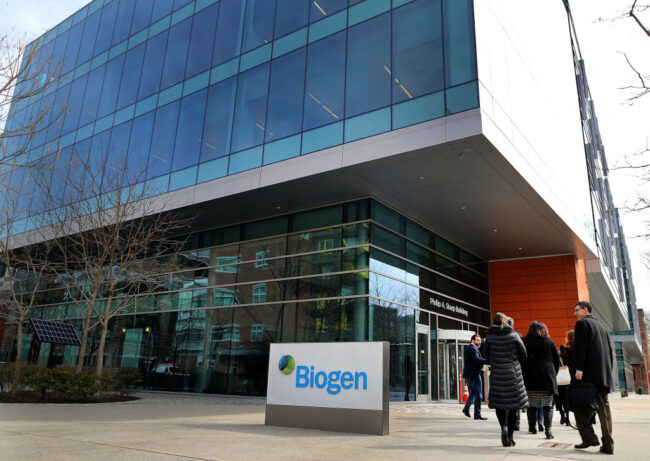
As Biogen presses on with its gene therapy ambitions, it wants to improve the process of manufacturing these therapies and it’s turning to synthetic biology company Ginkgo Bioworks for help.
On Friday, the companies announced an agreement that gives Cambridge, Massachusette-based Biogen access to Ginkgo’s proprietary cell programming platform and capabilities. Ginkgo will use its bioengineering capabilities to improve the production of the engineered viruses used in these gene therapies. According to the terms of the agreement, Biogen is paying Ginkgo $5 million up front. Ginkgo could earn up to $115 million in milestone payments if the alliance reaches research, developmental, and commercial goals.
Ginkgo does not make gene therapies or drugs. It strikes deals with companies that leverage its synthetic biology technology to make their products. Boston-based Ginkgo uses data analytics, software, automation to engineer cells with particular functions.
The viral vector that is the basis for gene therapies from Biogen and many other companies is adeno-associated virus (AAV). Manufacturing AAV is time consuming and expensive. For the Biogen partnership, Ginkgo will use its mammalian cell programming technology to improve and make more efficient the production of the genetic constructs and cell lines used to produce AAV. That work could help Biogen speed up the development of new gene therapies.
“We believe that Ginkgo’s unique combination of cell programming expertise, proprietary tools and knowledge of biological systems make them an ideal collaboration partner to explore a large number of design ideas with the goal of optimizing constructs,” Alphonse Galdes, Biogen’s head of pharmaceutical operations and technology, said in a prepared statement.

A Deep-dive Into Specialty Pharma
A specialty drug is a class of prescription medications used to treat complex, chronic or rare medical conditions. Although this classification was originally intended to define the treatment of rare, also termed “orphan” diseases, affecting fewer than 200,000 people in the US, more recently, specialty drugs have emerged as the cornerstone of treatment for chronic and complex diseases such as cancer, autoimmune conditions, diabetes, hepatitis C, and HIV/AIDS.
Biogen’s most advanced gene therapy candidate is timrepigene emparvovec, which is in Phase 3 testing in choroideremia, an inherited retinal disease that leads to vision loss. Another program, cotoretigene toliparvovec, recently failed Phase 2/3 study in X-linked retinitis pigmentosa. Both gene therapies came to Biogen via its 2019 buyout of Nightstar Therapeutics. That $800 million acquisition also brought Biogen preclinical assets.
Ginkgo’s biopharmaceutical industry partners include Roche, Moderna, and Synlogic. Earlier this month, the synthetic biology company announced it reached a deal to itself public via a merger with a special purpose acquisition company.
Photo: John Tlumacki/The Boston Globe, via Getty Images












